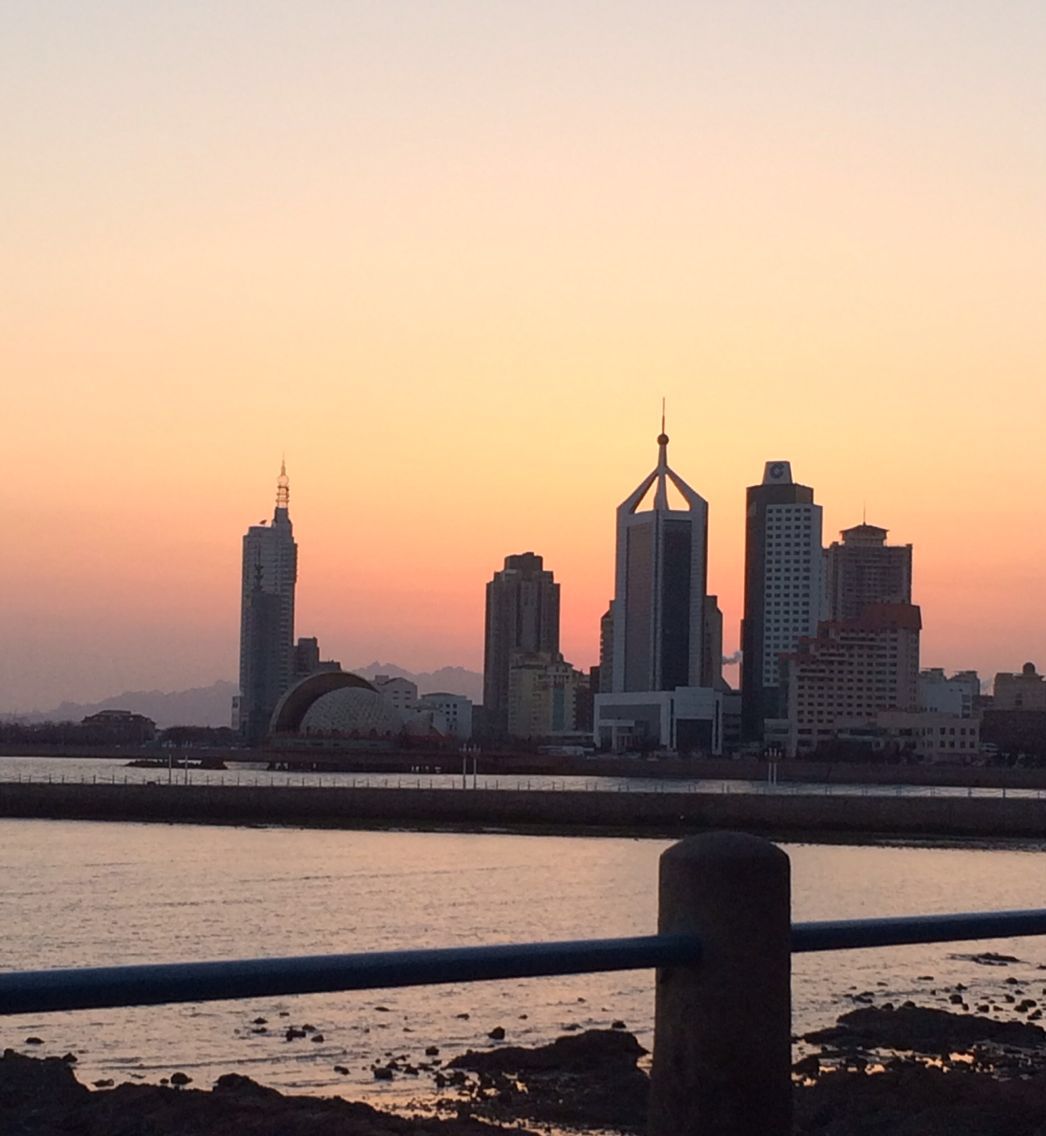Xiao Yu Shan on:
[Wikipedia]
[Google]
[Amazon]
 Xiao Yu Hill (
Xiao Yu Hill (
 Xiao Yu Hill (
Xiao Yu Hill (Chinese
Chinese can refer to:
* Something related to China
* Chinese people, people of Chinese nationality, citizenship, and/or ethnicity
**''Zhonghua minzu'', the supra-ethnic concept of the Chinese nation
** List of ethnic groups in China, people of ...
: 小鱼山公园, meaning "Small Fish Mountain Public Park") is located north-east of the Laiyang road, Qingdao. It is 60 meters high and covers an area of 2.5 hectares. It is the first park hill with a style of classical gardens in Qingdao. From the hill, visitors can see Zhan Qiao Pier, Xiaoqingdao Island, Lu Xun Park (Qingdao), bathing beach, Ba Da Guan.
History
The Xiao Yu Hill is a scenic spot with classicism in Qingdao, which is published to approve the first batch of state-level scenic spot by the government. In 1934, in order to promoteBuddhism
Buddhism ( , ), also known as Buddha Dharma and Dharmavinaya (), is an Indian religions, Indian religion or Indian philosophy#Buddhist philosophy, philosophical tradition based on Pre-sectarian Buddhism, teachings attributed to the Buddha. ...
, the householder Wang Jinyu sponsored to build the teaching room at the top of Xiaoyu Hill. The room is for Buddhists to listening to the Buddha dharma, which is named as Zhanshan Building. It covers an area of about 12 acres and has two floors, which forming ancient architecture. The compound roof uses black tiles. Senior teachers recall that after the construction of Zhanshan Building, every Sunday afternoon, there are many people coming to listen to the dharma. Xiaoyu Hill became a popular land. In 1959, Zhanshan Building was demolished by nearly collapsed and there is only a site.
Modern History
In early 1980s, in order to develop and maintain Xiaoyu Hill, the valuable landscape historic resource, the bureau for Qingdao Environmental Health begins to construct the first classical style hill park - the Xiaoyu Hill Park. The park highlights the characteristics of the sea, the pavilion, the platform and the corridor. The bronze on the park gate is main entrance. Green eaves tiles on the wall are also engraved with their small fish, revealing the characteristics of the "fish" mountain everywhere.Honors
On June 8, 2012, the cultural celebrity street of Xiaoyu Hill is elected as a Chinese historical and cultural street. After Badaguan was elected as the first, Qingdao won the award for the second block. The cultural celebrity street of Xiaoyu Hill is surrounded by Fushan Road, Daxue Road, Laiyang Road and Yushan Road. There are many old buildings in these roads and these become the most charming scenery of Qingdao. Old streets are charming because they are over the years and become the vicissitudes of life. The old buildings are solitary because they left the traces of celebrity. This famous celebrity street is a precious historical heritage. It even becomes the developed and protected tourist resources for Qingdao.House of Kang Youwei
The house of Kang Youwei is located in Fushan Road, Qingdao. It is near by Xiaoyu Hill. In history, when Germany came to invade Qingdao, Kang Youwei visited to Qingdao and bought this house in 1923. The lastemperor
An emperor (from la, imperator, via fro, empereor) is a monarch, and usually the sovereignty, sovereign ruler of an empire or another type of imperial realm. Empress, the female equivalent, may indicate an emperor's wife (empress consort), ...
in Qing dynasty
The Qing dynasty ( ), officially the Great Qing,, was a Manchu-led imperial dynasty of China and the last orthodox dynasty in Chinese history. It emerged from the Later Jin dynasty founded by the Jianzhou Jurchens, a Tungusic-spea ...
, Puyi
Aisin-Gioro Puyi (; 7 February 1906 – 17 October 1967), courtesy name Yaozhi (曜之), was the last emperor of China as the eleventh and final Qing dynasty monarch. He became emperor at the age of two in 1908, but was forced to abdicate on 1 ...
, he gave Kang the name of his house "TangMing", therefore, Kang named the mansion "sky garden". Kang youwei, although he never settled in Qingdao, he would visit here and live in the house for a period until he died in 1927.
The museum has the history of Kang youwei and his famous Hundred Days' Reform
The Hundred Days' Reform or Wuxu Reform () was a failed 103-day national, cultural, political, and educational reform movement that occurred from 11 June to 22 September 1898 during the late Qing dynasty. It was undertaken by the young Guangxu E ...
. In this house, there are precious historical photos, literature Kang's famous research monographs and articles. Home rehabilitation is on display in three rooms.
References
Sources
* Yinmu Ren, ''Early Modernization Research of Qingdao'', Beijing: Sanlian Bookstore. 2007. * You Lu, ''Old Postcards of Qingdao'', Qingdao: Qingdao Press, 2003. * Walravens, Hartmut. "German Influence on the Press in China". In: ''Newspapers in International Librarianship: Papers Presented by the Newspaper Section at IFLA General Conferences''. January 1, 2003. , . {{coord missing, Shandong Parks in Shandong Tourist attractions in Qingdao